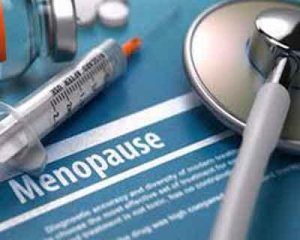- Home
- Editorial
- News
- Practice Guidelines
- Anesthesiology Guidelines
- Cancer Guidelines
- Cardiac Sciences Guidelines
- Critical Care Guidelines
- Dentistry Guidelines
- Dermatology Guidelines
- Diabetes and Endo Guidelines
- Diagnostics Guidelines
- ENT Guidelines
- Featured Practice Guidelines
- Gastroenterology Guidelines
- Geriatrics Guidelines
- Medicine Guidelines
- Nephrology Guidelines
- Neurosciences Guidelines
- Obs and Gynae Guidelines
- Ophthalmology Guidelines
- Orthopaedics Guidelines
- Paediatrics Guidelines
- Psychiatry Guidelines
- Pulmonology Guidelines
- Radiology Guidelines
- Surgery Guidelines
- Urology Guidelines
New lasers effective in genitourinary syndrome of menopause

Microablative fractional CO2 lasers are energy-based devices designed to help manage troublesome menopause symptoms such as painful sex, dryness, itching/burning, urinary frequency, and incontinence. Although there is an ongoing debate regarding the safety and effectiveness of vaginal laser surgery, a new study suggests that it may be effective, especially after multiple treatments. Study results are published online in Menopause, the journal of The North American Menopause Society (NAMS).
Collectively known as the genitourinary syndrome of menopause (GSM), the various genital and urinary problems associated with menopause have created a market for new therapies and treatments to help women regain sexual function and bladder control. Vaginal laser surgery represents one of the newer and more hotly contested approaches.
In the case of micro ablative fractional CO2 laser surgery, a series of microscopic laser beams using fractionated energy penetrates the skin to remove old and damaged skin cells, intended to rebuild the vaginal pathway. In this new study, GSM symptoms were evaluated up to12 months after the last laser surgery and compared based on the number of total therapies applied (up to a total of five).
The results of this small, retrospective, non-sham-controlled study demonstrated that this type of laser surgery was particularly effective in reducing the intensity of dyspareunia (painful sex) and dryness. It further demonstrated that four or five laser therapies may be superior in lowering the intensity of GSM symptoms compared with three laser therapies in both short- and long-term follow-up. Study results are published in the article "Microablative fractional CO2 laser for the genitourinary syndrome of menopause: up to 12-month results."
"This study adds to the literature on vaginal laser therapy for GSM. However, more robust randomized, sham-controlled data are needed, with larger numbers of women, to evaluate long-term safety, benefits, and risks," says Dr. JoAnn Pinkerton, NAMS executive director. "Until more data are available, all treatment options, including lubricants, vaginal moisturizers, and FDA-approved vaginal and systemic hormone therapies, should be discussed with women who suffer from GSM to determine the best treatment option for them."

Disclaimer: This site is primarily intended for healthcare professionals. Any content/information on this website does not replace the advice of medical and/or health professionals and should not be construed as medical/diagnostic advice/endorsement or prescription. Use of this site is subject to our terms of use, privacy policy, advertisement policy. © 2020 Minerva Medical Treatment Pvt Ltd